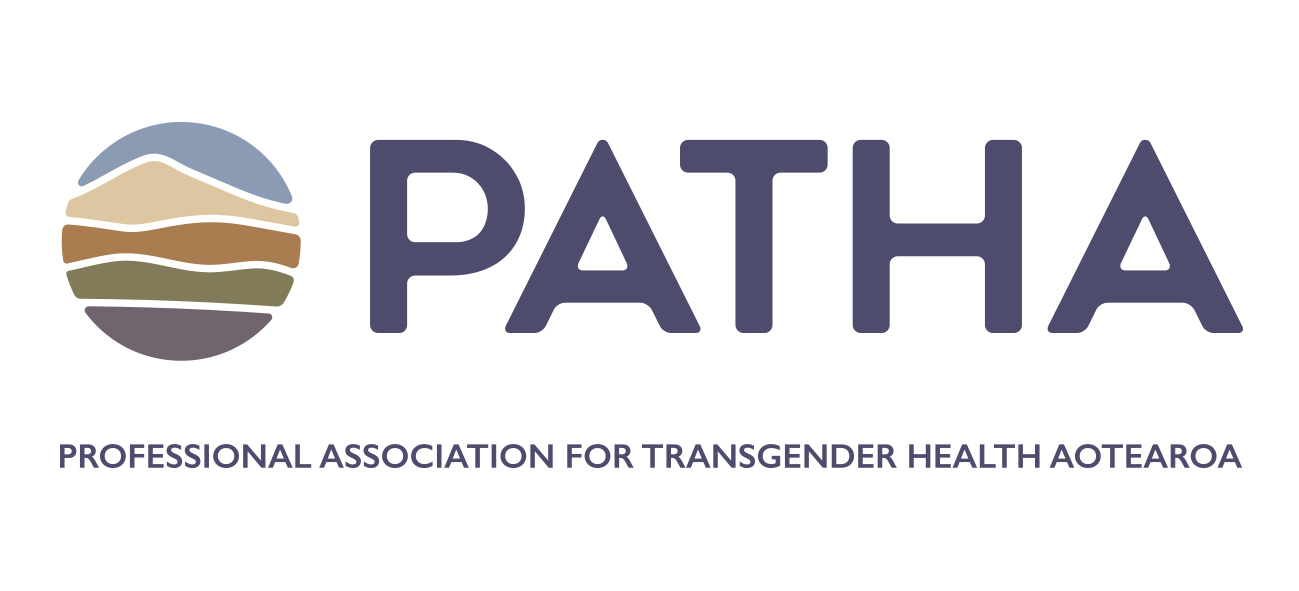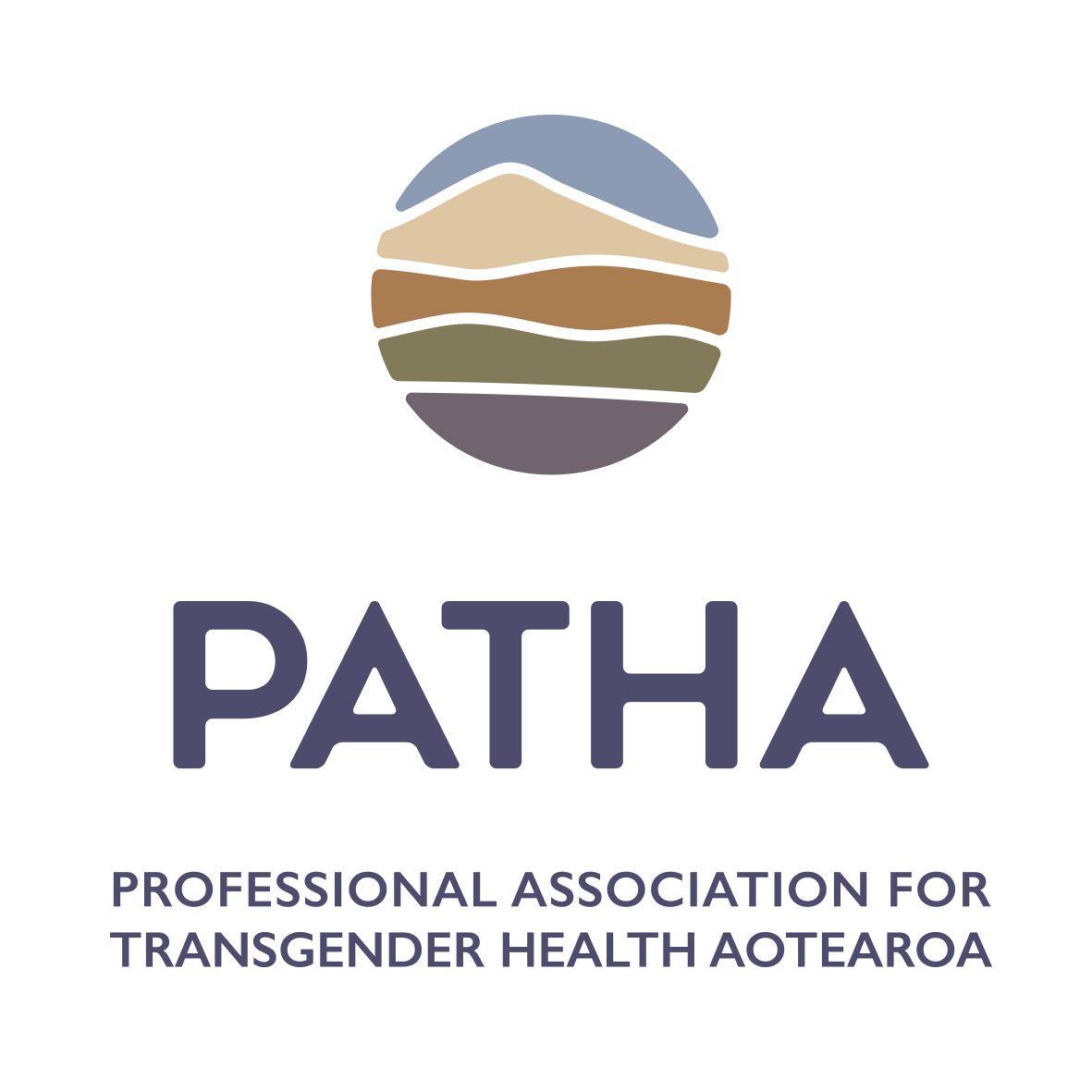A collaborative article by members of the PATHA Executive Committee and AusPATH Board of Directors has been published in the Australian and New Zealand Journal of Psychiatry (ANZJP). This article responds to the Royal Australasian and New Zealand College of Psychiatrists (RANZCP) Position Statement on Gender Dysphoria and calls for them to review their statement.
In November 2021, PATHA, AusPATH, and ACON also sent an open letter to the President of the RANZCP, also calling for a review of this position statement. This letter was also signed by 20 community-controlled organisations across the two countries.
You can view the article on the ANZJP website, and the text is below. We are very grateful to Sav Zwickl for leading this article.
Re: The RANZCP position statement on gender dysphoria
Sav Zwickl , Belinda Chaplin, Fiona Bisshop, Teddy Cook, Clara Tuck Meng Soo, Belinda Birtles, Jaimie Veale, Rona Carroll, Rachel Johnson, Joey Macdonald, Jesse Porter, Cassie Withey-Rila, Zoe Kristensen
, Belinda Chaplin, Fiona Bisshop, Teddy Cook, Clara Tuck Meng Soo, Belinda Birtles, Jaimie Veale, Rona Carroll, Rachel Johnson, Joey Macdonald, Jesse Porter, Cassie Withey-Rila, Zoe Kristensen , Ashleigh Lin
, Ashleigh Lin
As members of the Board of Directors for the Australian Professional Association for Trans Health (AusPATH) and the Executive Committee of the Professional Association for Transgender Health Aotearoa (PATHA), we are deeply concerned by the updated RANZCP Position Statement 103 ‘Recognising and addressing the mental health needs of people experiencing Gender Dysphoria/Gender Incongruence’. We have many decades of experience in trans healthcare between us, including lived expertise as trans people – both binary and non-binary, and/or in clinical, research and community practice. We consider the approach taken by RANZCP to trans people as inappropriate and harmful.
Historically, psychiatry has played a central role in the pathologisation of those seeking medical gender affirmation. Gatekeeping, the process by which gender affirming care has been withheld or controlled by the medical field, has been widely practiced in psychiatry, neglecting a patient-led, informed consent approach. As we outline below, the recent RANZCP position statement frames the trans experience as inherently pathological. This is in direct conflict with World Health Organization, American Psychiatric Association, World Professional Association for Transgender Health, AusPATH and PATHA, all of whom make it clear that being trans is not a pathology.
Through selectively citing research and treatment guidelines, the position statement equates peer-reviewed evidence with ‘professional opinion’ and the notion of supporting trans people as a ‘debate’. Important research such as Trans Pathways (Strauss et al., 2017) in Australia and Counting Ourselves (Veale et al., 2019) from Aotearoa New Zealand are notably missing from the position statement. These represent some of the largest studies ever conducted in this region about the mental health and care pathways of trans people, including trans young people, and clearly demonstrate that supporting and affirming trans people are a protective factor against psychological distress, self-harm and suicidality. The benefits of gender affirming hormones and surgery are well documented in alleviating gender dysphoria and improving mental health and quality of life (e.g., Hembree et al., 2017). Further, while some people have expressed concern about supposedly high incidences of ‘transition regret’ and ‘detransition’, these claims are largely unfounded. Regret related to gender affirming hormones and surgery is extremely rare; the largest study to date, which involved 6793 trans people followed between 1972 and 2015, demonstrated a surgery regret rate of just 0.5% (Wiepjes et al., 2018). Data also demonstrate that those people who do ‘detransition’ do so predominantly due to extrinsic factors, such as discrimination, rather than no longer being trans. A number of these people do go on to ‘retransition’ or resume transition at a later date, although unfortunately there is often inadequate follow up to document this.
While trans people do indeed experience staggeringly high rates of mental health and psychological distress, this is not inherent to being trans. The position statement completely neglects to acknowledge that high rates of mental distress and suicidality in trans populations are largely attributable to external factors. These include facing daily discrimination and stigma and experiencing rejection and violence within the home, employment, education, justice system and across many other domains of life (Strauss et al., 2017; Veale et al., 2019). Of most relevance to psychiatry, adolescents who have faced denial and delayed access to social and medical affirmation are significantly more likely to experience mental distress (Turban et al., 2022).
The pathologisation of trans people by the RANZCP further perpetuates stigma. Since the position statement was published, we have observed it being used nefariously, with harmful outcomes. For example, the position statement has been cited in submissions that support conversion practices for the New Zealand Conversion Practices Prohibition Legislation and in legislative advocacy in some US states seeking to ban access to gender affirming healthcare for young people.
Given that being trans is not a pathology, psychiatry’s place in trans healthcare today should be limited to working with mental health concerns, which are faced by trans people inequitably due to stigma, lack of support, discrimination and prejudice. With the depathologisation of trans experiences and the shift to a patient-led, informed consent model of care in both Australian and Aotearoa New Zealand, general practitioners, endocrinologists and sexual health specialists are routinely prescribing gender affirming hormones to trans adults without the involvement of mental health professionals or the necessity of a diagnosis of Gender Dysphoria (as per the DSM-V). In trans individuals above the age of 18 years, the majority seeking gender affirming hormonal or surgical intervention only require a psychiatric or psychological opinion when underlying medical or psychiatric conditions could reasonably impact their capacity to provide informed consent. These assessments should purely be for the purposes of determining capacity and should be indistinguishable from an assessment of capacity for a cisgender individual seeking to undergo a medical procedure. It may also be appropriate for psychiatrists to consider prescribing gender affirming hormone therapy themselves (with appropriate safeguarding, support and oversight) as a treatment to alleviating the distress (and associated, e.g. depression and anxiety) arising from gender dysphoria.
In conclusion, the RANZCP position runs directly counter to the well-established evidence base that gender affirmation improves health outcomes and strengthens quality of life. Unreasonable barriers to access and outdated and harmful arbitrary protocols, can only lead to poorer health and wellbeing outcomes for trans people across the lifespan, including young people. Unfortunately, some trans people lose their life through suicide due to the lack of access or denial of appropriate healthcare and gender affirming treatment. To avoid this, health professionals should follow contemporary, evidence-based practice guidelines, such as those endorsed by AusPATH and PATHA, and engage in ongoing professional development.
As members of the trans community, researchers and clinicians dedicated to providing gender affirming care, we urgently and respectfully ask that the RANZCP review their position statement.
Declaration of conflicting interests
The authors declared no potential conflicts of interest with respect to the research, authorship, and/or publication of this article.
Funding
The authors received no financial support for the research, authorship, and/or publication of this article.
References
|
Hembree, WC, Cohen-Kettenis, PT, Gooren, L, et al (2017) Endocrine treatment of gender-dysphoric/gender-incongruent persons: An endocrine society clinical practice guideline. The Journal of Clinical Endocrinology & Metabolism 102: 3869–3903.
Google Scholar | Crossref | Medline |
|
Strauss, P, Cook, A, Winter, S, et al (2017) Trans Pathways: The Mental Health Experiences and Care Pathways of Trans Young People. Summary of results. Perth, Australia: Telethon Kids Institute.
Google Scholar |
|
Turban, JL, King, D, Kobe, J, et al (2022) Access to gender-affirming hormones during adolescence and mental health outcomes among transgender adults. PLoS One 17: e0261039.
Google Scholar | Crossref | Medline |
|
Veale, J, Byrne, J, Tan, KK, et al (2019) Counting Ourselves: The health and wellbeing of trans and non-binary people in Aotearoa New Zealand. Hamilton, New Zealand: Transgender Health Research Lab.
Google Scholar |
|
Wiepjes, CM, Nota, NM, de Blok, CJ, et al (2018) The Amsterdam cohort of gender dysphoria study (1972–2015): Trends in prevalence, treatment, and regrets. The Journal of Sexual Medicine 15: 582–590.
Google Scholar | Crossref | Medline |

